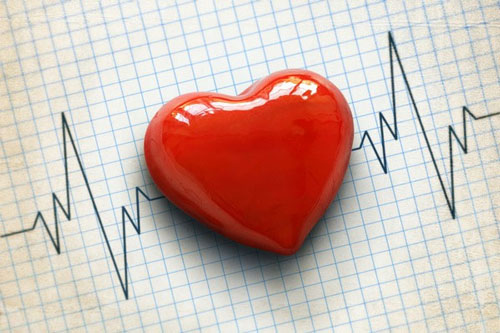Heart palpitations can be scary, particularly if they happen during the night when a person is lying down to sleep and when they occur, a person may feel a pulsing sensation in their neck, chest, or throat.
Although heart palpitations are not usually a cause for concern, they can sometimes be a sign of an underlying condition.
People with heart palpitations typically experience one or more of the following sensations:
• a rapid heartbeat
• a fluttering heart
• skipping beats or extra beats
The palpitations can start at any time of the day, including at night, when a person is resting. They can last from a few seconds to a few minutes. Heart palpitations are common, and doctors generally consider them harmless.
People who sleep on their side, in particular on the left side, may be more prone to heart palpitations at night. The reason for this is that the heart is right next to the chest wall, and the sensation reverberates.
Heart palpitations may also be more noticeable at night because there are fewer distractions and lower noise levels when lying in bed. There are several possible causes of heart palpitations, including external factors and some underlying health conditions.
Some common causes include:
• exercise or other physical activity
• certain medications, such as asthma inhalers, cold medicine, or thyroid pills
• alcohol
• stress or other strong emotions
• recreational drug use
• caffeine
• nicotine use
A number of underlying conditions can also cause heart palpitations, including:
• overactive thyroid
• low blood pressure
• arrhythmia, an irregular heartbeat
• low blood sugar levels
• anemia
A 2018 study involving 688 people with heart palpitations found that in 81% of cases, symptoms were associated with cardiac arrhythmia. The authors suggest that early detection and treatment of arrhythmia are key to treating the condition.
The following triggers may also cause heart palpitations:
• dehydration
• pregnancy
• fever
• eating rich foods or foods that are high in monosodium glutamate (MSG), fat, or sugar
Occasional heart palpitations do not necessarily require medical advice or treatment. However, a person should see a doctor if they experience the following symptoms.










